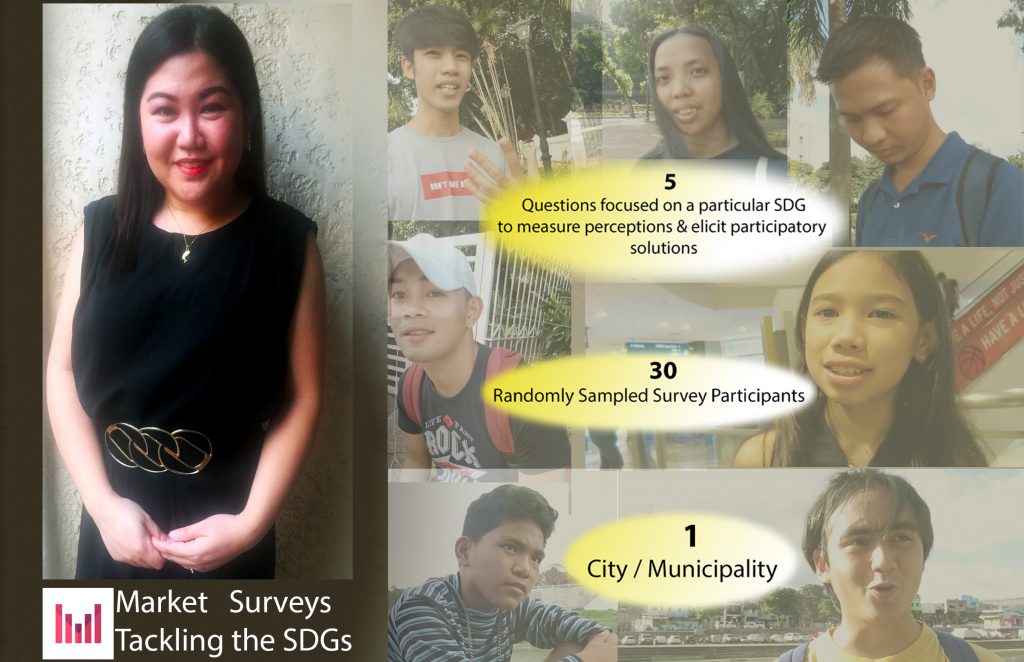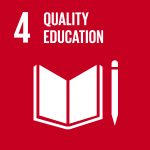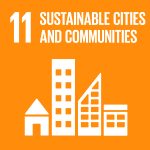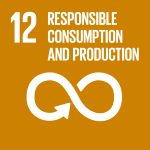Esta web utiliza cookies para que podamos ofrecerte la mejor experiencia de usuario posible. La información de las cookies se almacena en tu navegador y realiza funciones tales como reconocerte cuando vuelves a nuestra web o ayudar a nuestro equipo a comprender qué secciones de la web encuentras más interesantes y útiles.
Market Opinion Surveys Tackling the SDGs
Description
Institution
Gesamtkunstwerk Research & Marketing Consultancy Services (GRMCS)

Organizations/areas of the university involved
No specific university (but students are most of the time targeted as research participants)
Country
PHILIPPINES
Market Opinion Polls directly involving the public’s inputs in the problem-solving discourse to attaining the SDG’s.
The series of studies dedicated to tackling the Sustainable Development Goals is part of “The Market Maven” Youtube page concept – a channel that publishes research initiatives and outcomes covering various topics, as carried out and delivered by GRMCS’ founder and consultant. It is originally intended to provide ’teasers’ and promote the market research consultancy business offerings through actual, sample research works, but with limited data generation (i.e., only for 1 to 3 cities; for a sampling base smaller than the regular sample size of market research projects that the consultancy can offer).
As the GRMCS’s founder is an alumna of SDSN’s “Climate Change Science and Negotiations” online course, and as the pandemic has hit, she thought it’s perfect timing to produce independent market research studies featuring the different SDG’s. What better way to bounce back for a post-pandemic global economic recovery by rebuilding as tied-in to goals for sustainable development.
So, taking from the usual format and methodology of her earlier research works for the channel, where a minimum sample base of N=30 random participants (with equal split by gender and by younger vs. older age groups) were interviewed in public places in 1 city or town, she framed her research interview questions in ways wherein she could gather a sound, measurable assessment of public opinion in relation to SDG awareness, comprehension, and target achievements.
The initiative strikes at two things: 1) to include the public in finding solutions which influence them to be part of the solution, and 2) to make them aware of the SDG’s and the possible ways they can do their part.
So far, a market study featuring each of the 4 goals (i.e., SDG’s 12, 11, 6 and 4) have been successfully completed.
Results and impact measured or expected
The series of studies provide a measurable gauge on different elements (e.g., for SDG 11 – How ‘sustainable’ do people think is their city in a scale of 1 to 10) as based from the perceptions of a percentage of people that’s representative of the community population, and define the necessary steps to address the SDG efforts as based from them. The initiative takes into consideration a base that is at least the minimum statistically-readable sample base.
Each study featuring a particular SDG asks about SDG awareness, and if, say, only 3% of the interviewed participants have an awareness on what SDG’s are, the 97% who did not know were informed and provided with explanation on what the Sustainable Development Goals are.
Connection with the SDG framework
The involvement and inputs of actual members of a society as collected in a randomly-sampled, scientific methodology which brings about the collective pulse on where and how the SDG’s stand in the consciousness of that town or city’s population, can serve as a good indicator or basis on how involved or participatory the community can be in acting towards attaining the goals for sustainable development.
The data gathered and insights generated can be a useful resource or reference for an academic institution or any other stakeholder in communicating SDG-related activities or programs – especially when requiring community participation.
The education component of the initiative, too, i.e., informing and explaining the featured SDG to a tapped survey participant who may not have an awareness of what the SDG’s are about, bring value to increased not just awareness but also comprehension, on the efforts for sustainable development.
Barriers and follow up
As the greatest barrier is funds (the initiative is personally-funded, not a commissioned project from business clients or local government / community), GRMCS designed the study in such a way that the interview time is short (within survey participants’ willingness to think of responses and engage) – usually less than 10 questions only, so a minimal token can be appreciated. We selected cities or towns that are just close by the GRMCS office.
Transferability of the initiative
With permission from GRMCS (which is a private sector consultancy business entity), the methodology of N=30 participants in 1 city or town for studies / topics that were already published in the Youtube channel, can be transferable. Would be nice to see how results vary in a different geographic context, and be able to monitor the bigger picture.
Education 4 SDG funciona gracias a WordPress




